Everlasting Love
January 23rd, 2021
Praise the God ofgods, for His lovingkindness endures forever.
Praise the Lord of lords, for His lovingkindness endures forever.
Psalms 136:2,3 TLV

Praise the God ofgods, for His lovingkindness endures forever.
Praise the Lord of lords, for His lovingkindness endures forever.
Psalms 136:2,3 TLV
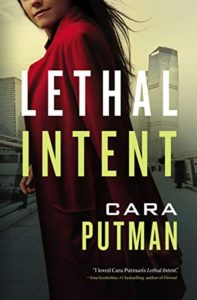
Caroline Bragg’s life has never been better. She and Brandon Lancaster are taking their relationship to the next level, and she has a new dream job as legal counsel for Praecursoria—a research lab that is making waves with its cutting-edge genetic therapies. The company’s leukemia treatments even promise to save desperately sick kids—kids like eleven-year-old Bethany, a critically ill foster child at Brandon’s foster home.
When Caroline’s enthusiastic boss wants to enroll Bethany in experimental trials prematurely, Caroline objects, putting her at odds with her colleagues. They claim the only goal at Praecursoria is to save lives. But does someone have another agenda?
Brandon faces his own crisis. As laws governing foster homes shift, he’s on the brink of losing the group home he’s worked so hard to build. When Caroline learns he’s a Praecursoria investor, it becomes legally impossible to confide in him. Will the secrets she keeps become a wedge that separates them forever? And can she save Bethany from the very treatments designed to heal her?
Book Details:
Genre: Mystery/Suspense
Published by: Thomas Nelson
Publication Date: January 12, 2021
Number of Pages: 336
ISBN: 0785233318 (ISBN13: 9780785233312)
Purchase Links: Amazon | Barnes & Noble | ChristianBook.com | Goodreads
Caroline shifted in the high-backed chair. The massive conference room table made her feel more petite than usual. Quentin Jackson, the man propelling Praecursoria through its rapid growth, vibrated with energy as he studied her.
“We are on the cusp of amazing developments and a transition from the lab to trials. We have a few CAR T-cell therapies in early stages now with more in our pipeline.”
She racked her mind for the importance of T cells, and he gave a hearty laugh.
“Don’t worry if the science overwhelms you. We’ll have you up to speed in no time. All you need to know right now is that T cells are one of the two cells that make up white blood cells. The treatments we’re working on could be the difference between life and death for young cancer patients. We need your legal expertise and quick mind to synthesize the science with the map to market.”
“I’ve overseen several court trials related to patents, which should help with that process.” It had been an unforeseen aspect of her days clerking for Judge Loren. She swallowed against the lump in her throat that still welled up when she thought about his untimely death from pneumonia. A month ago she couldn’t imagine interviewing for a job somewhere else, even if a part of her knew that she should stretch her wings.
“When can you start? Today?”
She felt rooted to the chair. Everything was moving so fast. Could she really transition her experience managing clerks for a judge into managing patents and contracts for a start-up? While Praecursoria had been around for a decade as a cancer research lab, about eighteen months ago Quentin sold off its lucrative genetic testing branch to focus exclusively on the development of cutting-edge CAR T-cell therapies. Starting over that way was a bold if risky move.
She lifted her chin and forced a smile that didn’t waver. “If that’s what you need. First we have a few details to work out.”
He laughed. “I like the way you tackle issues head-on. That will be key in this role. I know how to steer the ship, and my chief scientist can navigate the research, but you’ll keep us on the legal straight and narrow.” He tapped his pen against the legal pad in front of him. Then he picked up her résumé and named a salary that pressed her against the chair. “There will be performance bonuses tied to the successful conclusion of trials. We want to look into stock options as well. That will be one of your assignments in conjunction with HR.” He slapped his hands on the table and she jumped. “My enthusiasm gets away from me sometimes.” He shrugged but never wavered as he examined her. “Let’s start with a field trip. The best way for you to understand why we’re doing this work and research is to show you.”
***
Excerpt from Lethal Intent by Cara Putman. Copyright 2021 by Cara Putman. Reproduced with permission from Thomas Nelson. All rights reserved.

Cara Putman is the author of more than twenty-five legal thrillers, historical romances, and romantic suspense novels. She has won or been a finalist for honors including the ACFW Book of the Year and the Christian Retailing’s BEST Award. Cara graduated high school at sixteen, college at twenty, completed her law degree at twenty-seven, and recently received her MBA. She is a practicing attorney, teaches undergraduate and graduate law courses at a Big Ten business school, and is a homeschooling mom of four. She lives with her husband and children in Indiana.
Visit these other great hosts on this tour for more great reviews, interviews, guest posts, and giveaways!

God is our refuge and strength, an ever present help in trouble.
Therefore we will not fear, though the earth change, though the mountains topple into the heart of the sea,
though its waters roar and foam, though the mountains quake at their swelling.
Psalms 36:2-4
TLV
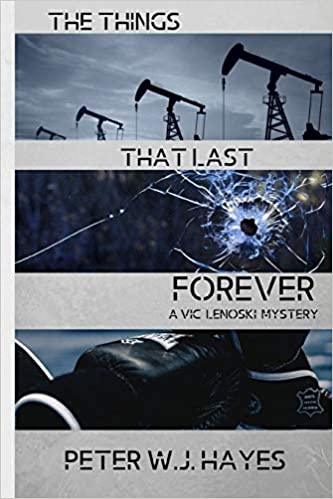
After a house fire hospitalizes his partner and forces him onto medical leave, Pittsburgh Bureau of Police detective Vic Lenoski starts a desperate search for the woman who set the blaze. She is the one person who knows what happened to his missing teenage daughter, but as a fugitive, she’s disappeared so thoroughly no one can find her.
Risking his job and the wrath of the district attorney, Vic resorts to bargaining with criminal suspects for new leads, many of which point to North Dakota. He flies there, only to discover he is far from everything he knows, and his long-cherished definitions of good and bad are fading as quickly as his leads. His only chance is one last audacious roll of the dice. Can he stay alive long enough to discover the whereabouts of his daughter and rebuild his life? Or is everything from his past lost forever?
“The mystery plot itself is riveting…a captivating and emotionally intelligent crime drama.” — Kirkus Reviews
Book Details:
Genre: Mystery: Police Procedural
Published by: Level Best Books
Publication Date: August 1, 2020
Number of Pages: 294
ISBN: 978-1-947915-56-5
Series: A Vic Lenoski Mystery; Pittsburgh Trilogy #3 || Each is a Stand Alone Mystery
Purchase Links: Amazon | Barnes & Noble | Goodreads
ISLAND BREEZES
Do some things last forever? Absolutely! Pain, sorrow, grief. These may ease, but still last forever.
A parent’s love is something else that lasts forever. It’s what motivates detective Vic Lenoski to go off on his own to search for his missing daughter.
He runs into all kinds of obstacles, including people he thought would help him. Finally, he finds help in surprising places.
Vic seems to run into a lot of dead ends which sometimes turn out to be deadly.
There’s a surprise waiting for Vic and for you, dear reader.
Thank you, Mr. Hayes. I’m looking forward to reading more Vic Lenoski mysteries.
***Book provided without charge by PICT. ***
Sometimes you walk into a room and what’s inside changes your life forever. That sense stopped Vic just inside the doorway. A woman with skin the color of dark amber lay on the only bed, her bandaged arms shockingly white among the shadows. She was reflected in a large window in the far wall, the outside sky as black and still as the inside of a tomb. He smelled disinfectant and blood. Numbers and graph lines flared on grey-eyed medical monitors. Somewhere in the vast empty spaces of the hospital a voice echoed.
He’d never visited a burn ward.
Never had a partner so close to death.
Never thought a room could seem as hollow as he felt inside.
The feeling was so disembodying that when he reached the bed and looked into the woman’s face, he half expected to see himself. But it was Liz, her forehead and knobby cheekbones smeared with ointment, eyebrows and eyelashes burned away. A bandage covered her left earlobe where her favorite earring, a small gold star, usually sat. It seemed like every breath she took pained her.
He wanted to take her hand but the bandages made it impossible. “Liz,” he said softly, her name almost lost among the beeps and clicks of the monitors. Liquid dripped into a tangle of IV tubes at the back of her fist.
Her eyelids fluttered.
“Liz. Doctor told me I could talk to you.”
Her eyes opened. He watched her pupils widen and narrow as they absorbed the distance to the ceiling and distinguished shadows from feeble light.
“Vic?” A hoarse whisper.
“I’m here.”
She turned her face to him. “You got me out.”
Relief rose in Vic’s throat. “Yeah. But the house didn’t make it.”
“Cora Stills?”
Vic squeezed his eyelids shut and rocked on his heels. He didn’t know where to start. Cora Stills. The one person who knew something—anything—about his missing teenage daughter. Liz on her way to arrest her. Instead, Liz, handcuffed to a radiator pipe as flames lathered and stormed through Cora’s house. Cora’s burned-out car found two days later on a crumbling stone dock next to a deserted warehouse, the Allegheny River emptying westward.
Cora, alive and moving through that tomb of darkness outside the window. Free.
“Vic…” Liz said something more but he couldn’t make it out.
He bent closer.
She forced her words from somewhere deep inside, and as she spoke, he knew this was what she saved through all the fear and pain to tell him. “Someone told Cora I was coming.”
***
Excerpt from The Things That Last Forever by Peter W. J. Hayes. Copyright 2020 by Peter W. J. Hayes. Reproduced with permission from Peter W. J. Hayes. All rights reserved.
Visit these other great hosts on this tour for more great reviews, interviews, guest posts, and giveaways!

Unfortunately, socialism is opposed to free speech. Especially if that speech is spoken by conservatives. It is sad to see this freedom being taken away from us here in the United States. This feels like the beginning of a dictatorship. I used to live in the land of the free – the home of the brave. Now I don’t.
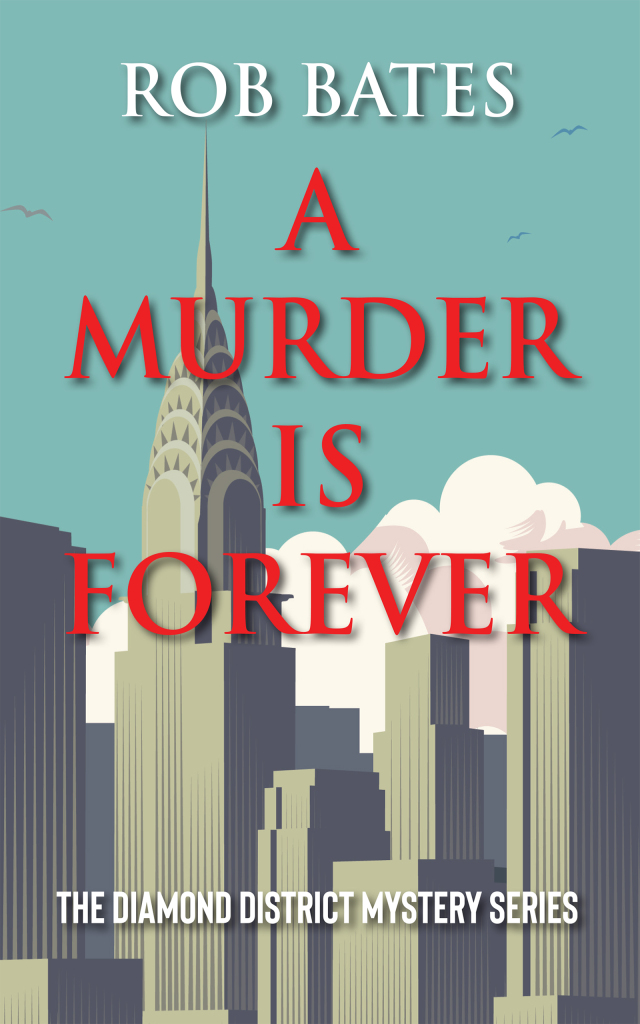
Max Rosen always said the diamond business isn’t about sorting the gems, it’s about sorting the people. His daughter Mimi is about to learn that some people, like some diamonds, can be seriously flawed.
After Mimi’s diamond-dealer cousin Yosef is murdered–seemingly for his $4 million pink diamond–Mimi finds herself in the middle of a massive conspiracy, where she doesn’t know who to trust, or what to believe. Now she must find out the truth about both the diamond and her cousin, before whoever killed Yosef, gets her.
“[A] sprightly debut …. Bates, who has more than 25 years as a journalist covering the diamond business, easily slips in loads of fascinating information on diamonds and Jewish culture without losing sight of the mystery plot. Readers will look forward to Mimi’s further adventures.” – Publishers Weekly
Book Details:
Genre: Mystery
Published by: Camel Press
Publication Date: October 13th 2020
Number of Pages: 281
ISBN: 1603812229 (ISBN13: 9781603812221)
Series: The Diamond District Mystery Series
Purchase Links: Amazon | Barnes & Noble | Goodreads
ISLAND BREEZES
Dreams lost and found. This book has them. There are also some nightmares in there.
Mimi is an out of work journalist who is working part-time for her father. It’s not what she wants to do, but it’s necessary in order to pay her rent and buy things like food.
She finds a friend in the office receptionist, but that turns into a not so friendly relationship as Mimi tries to find out who murdered her cousin.
You’ll meet some interesting characters and be surprised when the murderer is revealed.
Thank you, Mr. Bates. I’m looking forward to seeing what kind of trouble Mimi next gets into next.
***Book provided without charge by PICT.***
By Rob Bates
CHAPTER ONE
As Mimi Rosen exited the subway and looked out on the Diamond District, she remembered the words of her therapist: “This won’t last forever.”
She sure hoped so. She had been working on Forty-Seventh Street for two months and was already pretty tired of it.
To outsiders, “The Diamond District” sounded glamorous, like a street awash in glitter. To Mimi, who had spent her life around New York, Forty-Seventh Street between Fifth and Sixth Avenues was a crowded, dirty eyesore of a block. The sidewalk was covered not with glitz, but with newspaper boxes, cigarettes, stacks of garbage bags, and, of course, lots of people.
Dozens of jewelry stores lined the street, all vying for attention, with red neon signs proclaiming “we buy gold” or “50 percent off.” Their windows boasted the requisite rows of glittery rings, and Mimi would sometimes see tourists ogling them, their eyes wide. She hated how the stores crammed so many gems in each display, until they all ran together like a mess of kids’ toys. For all its feints toward elegance, Forty-Seventh Street came off as the world’s sparkliest flea market.
Mimi knew the real action in the Diamond District was hidden from pedestrians, because it took place upstairs. There, in the nondescript grey and brown buildings that stood over the stores, billions in gems were bought, sold, traded, stored, cut, appraised, lost, found, and argued over. The upstairs wholesalers comprised the heart of the U.S. gem business; if someone bought a diamond anywhere in America, it had likely passed through Forty-Seventh Street.
Mimi’s father Max had spent his entire life as part of the small tight-knit diamond dealer community. It was a business based on who you knew—and even more, who you trusted. “This business isn’t about sorting the diamonds,” Max always said. “It’s about sorting the people.” Mimi would marvel how traders would seal million-dollar deals on handshakes, without a contract or lawyer in sight.
It helped that Forty-Seventh Street was comprised mostly of family businesses, owned by people from a narrow range of ethnic groups. Most—like Mimi’s father—were Orthodox, or religious, Jews. (“We’re the only people crazy enough to be in this industry,” as Max put it.) The Street was also home to a considerable contingent of Hasidic Jews, who were even more religious and identifiable by their black top hats and long flowing overcoats. Mimi once joked that Forty-Seventh Street was so diverse, it ran the gamut from Orthodox to ultra-Orthodox.
Now Mimi, while decidedly secular, was part of it all. Working for her father’s diamond company was not something she wanted to do, not something she ever dreamed she would do. Yet, here she was.
She had little choice. She had not worked full-time since being laid off from her editing job a year ago. She was already in debt from her divorce, which had cost more than her wedding, and netted little alimony. “That’s what happens when you divorce a lawyer,” said her shrink.
Six months after she lost her job, Mimi first asked her father for money. He happily leant it to her, though he added he wasn’t exactly Rockefeller. It was after her third request—accompanied, like the others, by heartfelt vows to pay him back—that he asked her to be the bookkeeper at his company. “I know you hate borrowing from me,” he told her. “This way, it isn’t charity. Besides, it’ll be nice having you around.”
Mimi protested she could barely keep track of her own finances. Her father reminded her that she got an A in accounting in high school. Which apparently qualified her to do the books at Max Rosen Diamond Company.
“We have new software, it makes it easy,” Max said. “Your mother, may she rest in peace, did it for years.”
Mimi put him off. She had a profession, and it wasn’t her mother’s.
Mimi was a journalist. She had worked at a newspaper for nine years, and a website for five. She was addicted to the thrill of the chase, the pump of adrenaline when she uncovered a hot story or piece of previously hidden info. There is no better sound to a reporter’s ears than someone sputtering, “How did you find that out?”
“It’s the perfect job for you,” her father once said. “You’re a professional nosy person.”
She loved journalism for a deeper reason, which she rarely admitted to her cynical reporter friends: She wanted to make a difference. As a girl, she was haunted by the stories they told in religious school, how Jews were killed in concentration camps while the world turned its head. Growing up, she devoured All the President’s Men and idolized pioneering female muckrakers like Nellie Bly.
Being a journalist was the only thing Mimi ever wanted to do, the only thing she knew how to do. She longed to do it again.
Which is why, she told her therapist, she would tell her father no.
Dr. Asner said she understood, in that soft melancholy coo common to all therapists. Then she crept forward on her chair.
“Maybe you should take your father up on this. He’s really throwing you a lifeline. You keep telling me how bad the editorial job market is.” She squinted and her glasses inched up her nose. “Sometimes people adjust their dreams. Put them on hold.”
Mimi felt the blood drain from her face. In her darker moments—and she had quite a few after her layoff—she had considered leaving journalism and doing something else, though she had no idea what that would be. Mimi always believed that giving up her lifelong passion would be tantamount to surrender.
Dr. Asner must have sensed her reaction, because she quickly backtracked.
“You can continue to look for a journalism job,” she said. “Who knows? Maybe working in the Diamond District will give you something to write about. Besides,”— here, her voice gained an edge—“you need the money.” That was driven home at the end of the forty-five minutes, when Dr. Asner announced that she couldn’t see Mimi for any more sessions, since Mimi hadn’t paid her for the last three.
By that point, Mimi didn’t know whether to argue, burst into tears, or wave a white flag and admit the world had won.
It was a cold February morning as Mimi walked down Forty-Seventh Street to her father’s office, following an hour-plus commute from New Jersey that included a car, a bus, and a subway. With her piercing hazel eyes, glossy brown hair, and closely set features, Mimi was frequently told she was pretty, though she never quite believed it. She had just gotten her hair cut short to commemorate her thirty-eighth birthday, hoping for a more “mature” look. She had always been self-conscious about her height; she was five foot four and tried to walk taller. She was wearing a navy dress that she’d snagged for a good price on eBay; it was professional enough to please her father, who wanted everyone to look nice in the office, without being so nice that she was wasting one of her few good outfits. She was bundled up with multiple layers and a heavy coat—to protect against the winter chill, as well as the madness around her.
Even though it was before 9 AM, Forty-Seventh Street was, as usual, packed, and Mimi gritted her teeth as she bobbed and weaved through the endless crowd. She sidestepped the store workers grabbing a smoke, covering her mouth so she wouldn’t get cancer. She swerved around the stern-looking guard unloading the armored car, with the gun conspicuously dangling from his belt. And she dodged the “hawker” trying to lure her into a jewelry store, who every day asked if she had gold to sell, even though every day she told him no.
Finally, Mimi reached her father’s building, 460 Fifth, the most popular address on “The Street.” After a few minutes standing and tapping her foot on the security line, she handed her driver’s license to the security guard and called out, “Rosen Diamonds.”
“Miss,” growled the guard with the oversized forehead who’d seen her three days a week for the past two months, “you should get a building ID. It’ll save you time in the morning.”
“It’s okay. I won’t be working here for long,” she chirped, though she wasn’t quite sure of that.
Next stop, the elevator bank. Mimi had an irrational fear of elevators; she was always worried she would die in one. She particularly hated these elevators, which were extremely narrow and perpetually packed. She envied those for whom a subway was their sole exposure to a cramped unpleasant space.
As the car rose, one occupant asked a Hasidic dealer how he was finding things.
“All you can do is put on your shoes. The rest is up to the man upstairs.”
Only in the diamond business. Mimi’s last job was thirty blocks away, yet in a different universe.
At each floor, dealers pushed and rushed like they were escaping a fire. When the elevator reached her floor, Mimi too elbowed her way to freedom.
As she walked to her father’s office, she marveled how the building, so fancy and impressive when she was a kid, had sunk into disrepair. The carpets were frayed, the paint was peeling, and the bathroom rarely contained more than one functioning toilet. If management properly maintained the building, they’d charge Midtown Manhattan rents, which small dealers like her father couldn’t afford. The neglect suited everyone.
She spied a new handwritten sign, “No large minyans, by order of the fire department.” Mimi produced a deep sigh. She had long ago left her religious background behind. Somehow, she was now working in a building where they warn against praying in the halls. She was going backward.
Perhaps the dealer in the elevator was right. You could only put on your shoes and do your best. She grabbed her pocketbook strap, threw her head back, and was just about at her father’s office when she heard the yelling.
“I’m so tired of waiting, Yosef! It’s not fair!”
Max’s receptionist, Channah, was arguing with her boyfriend, Yosef, a small-time, perpetually unsuccessfully diamond dealer. Making it more awkward: Yosef was Mimi’s cousin.
Channah and Yosef had dated for nearly eighteen months without getting married—an eternity in Channah’s community. Still, whenever Channah complained, Mimi remembered how her ex-husband only popped the question after three years and two ultimatums.
“Give me more time,” Yosef stuttered, as he tended to do when nervous. “I want to be successful in the business.”
“When’s that going to happen? The year three thousand?”
The argument shifted to Yiddish, which Mimi didn’t understand, though they were yelling so fiercely she didn’t need to. Finally, tall, skinny Yosef stormed out of the office, his black hat and suit set off by his red face. He was walking so fast he didn’t notice his cousin Mimi standing against the wall. Given the circumstances, she didn’t stop him to say hello. She watched his back grow smaller as he stomped and grunted down the hall.
Mimi gave Channah time to cool down. After a minute checking in vain for responses to her latest freelance pitch—editors weren’t even bothering to reject her anymore—she rang the doorbell. She flashed a half-smile at the security camera stationed over the door, and Channah buzzed her in. Mimi hopped into the “man trap,” the small square space between security doors that was a standard feature of diamond offices. She let the first door slam behind her, heard the second buzz, pulled the metal handle on the inner door, and said hello to Channah, perched at her standard spot at the reception desk.
Channah had long dark curly hair, which she constantly twirled; a round, expressive face, dotted with black freckles; and a voluptuous figure that even her modest religious clothing couldn’t hide.
“Did you hear us argue?” she asked Mimi.
“No,” she sputtered. “I mean—”
Channah smiled and pointed to the video monitor on her desk. “I could see you on the camera.” Her shoulders slouched. “It was the same stupid argument we always have. Even I’m bored by it.”
“Hang in there. We’ll talk at lunch.” Mimi and Channah shared a quick hug, and Mimi walked back to the office.
She was greeted by her father’s smile and a peck on the cheek. If anything made this job worthwhile, it was that grin. Plus the money.
“How are things this morning?”
“Baruch Hashem,” Max replied. Max said “thank God” all the time, even during his wife’s sickness, when he really didn’t seem all that thankful.
Sure enough, he added, “We’re having a crisis.”
Mimi almost rolled her eyes. It was always a crisis in the office. When Mimi was young, the family joke was that business was either “terrible” or “worse than terrible.”
Lately, her dad seemed more agitated than normal. As he spoke, he puttered in a circle and his hands clutched a pack of Tums. That usually didn’t come out until noon.
“I can’t find the two-carat pear shape.” He threw his arms up and his forehead exploded into a sea of worry lines. “It’s not here, it’s not there. It’s nowhere.”
Max Rosen was dressed, as usual, in a white button-down shirt and brown wool slacks, with a jeweler’s loupe dangling on a rope from his neck. His glasses sat off-kilter on his nose, and two shocks of white hair jutted from his skull like wings. When he was excited about something, like this missing diamond, the veins in his neck popped and the bobby-pinned yarmulke seemed to flap on his head.
Mimi stifled a laugh. That was the crisis? Diamonds always got lost in the office. As kids, Mimi and her two sisters used to come in on weekends and be paid one dollar for every stone they found on the floor. “They travel,” Max would say.
It was no surprise that things went missing in that vortex of an office. Every desk was submerged under a huge stack of books, magazines, and papers. The most pressing were placed on the seat near her father’s desk, what he called his “in-chair.”
When Mimi’s mother worked there, she kept a lid on the chaos. After her death, Max hired a few bookkeepers, none of whom lasted; two years later, the job had somehow fallen to Mimi.
Eventually, Channah found the two-carat pear shape, snug in its parcel papers, right next to the bathroom keys. The only logical explanation was that Max was examining it while on the toilet.
Max sheepishly returned to his desk. Mimi loved watching her father at work. She was fascinated by how he joked with friends, took grief from clients, and kept track of five things at once. It felt exotic and forbidden, like observing an animal in its natural habitat.
For the most part, they got along, which was no small thing. Over the years, there had been tense moments as he struggled to accept that she was no longer religious. Lately, he rarely brought the topic up, and she didn’t want him to. Her split from her non-Jewish ex probably helped.
On occasion, the old strains resurfaced, in subtle ways. Max’s desk was covered with photos—mostly of Mimi’s mom and her religious sisters and their religious broods. One time when Max was at lunch, Mimi tiptoed over to glance at them, and—not incidentally—check how many were of her. It made her feel silly, yet she couldn’t help herself. She was a professional nosy person.
She got her answer: out of about twenty photos, Mimi was in three, an old family photo and two pics from her sisters’ weddings. That was less than expected. She tried not to take it personally. She had no kids and her marriage was a bust. What was there to show off?
Mimi spent most of the morning deciphering her father’s books—a task made more difficult by his aging computer system, which regularly stalled and crashed. Her father’s “new” software was actually fifteen years old.
Sometimes she wished he gave her more substantial tasks to do. While her father would never say it, he didn’t consider the diamond industry a place for women, as it had always been male-dominated—even though, ironically, it catered mostly to females. That was fine with Mimi. She didn’t want to devote her life to a rock.
At 1 PM, Channah and Mimi headed for Kosher Gourmet, their usual lunch spot. Mimi always joked, “I don’t know if it’s kosher, but it’s not gourmet.”
In the two months Mimi had worked for her father, she and Channah had become fast friends, bonding over their shared love of mystery novels, crossword puzzles, and sarcastic senses of humor.
Channah was not Mimi’s typical friend. She was twenty-three and her parents were strictly religious, even more than Mimi’s. She commuted to Forty-Seventh Street every day on a charter bus from Borough Park, a frum enclave in Brooklyn. The Diamond District was her main exposure to the wider world. She reminded Mimi of her younger, more religious self, under her parents’ thrall yet curious what else was out there.
Mimi was not Channah’s typical friend either. During their lunches, Channah quizzed her on the taste of non-Kosher food (it didn’t taste any different, Mimi told her); sex (“When the time comes,” Mimi said, “you’ll figure it out”); and popular culture (“Can you explain,” Channah once asked, “why Kim Kardashian is famous?” Mimi just said no.) Today, as usual, they talked about Yosef.
“I don’t get it.” Channah wrapped sesame noodles around her white plastic fork. “I love him. He loves me. Why not get married?”
Mimi took a sip from her Styrofoam cup filled with warm tap water. She preferred bottled water but couldn’t afford it. “Have you thought of giving Yosef an ultimatum? Tell him if he doesn’t marry you by a certain date, that’s it.”
“Yosef wouldn’t take that seriously.” Channah turned her eyes to her tray.
“Why not?”
“Cause I’ve done that already. Three times! I backed down every time.” Her fork toyed with her food. “I believe it is beshert that Yosef and I will end up together. I’ve thought so since I first met him at your father’s office, and he smiled at me. What choice do I have?” Her elbow nudged her tray across the table.
“I understand why he’s waiting. He wants to be a steady provider. That’s a good thing, right?”
Actually, Mimi found it sexist. She didn’t say that, because she found many things in Channah’s world sexist.
“He just needs to sell that pink,” Channah said, spearing a dark brown cube of chicken.
Mimi took a quick sip of water. “That pink” was an awkward subject.
One month ago, Yosef had bought a three-point-two carat pink diamond. It was the biggest purchase of his career, the kind of high-risk move that could make or break his business. Max was overjoyed. “Do you know how rare pink diamonds are?” he exclaimed. “And it’s a three-carater! Sounds like a great buy!”
That was, until Yosef proudly presented it to his uncle Max, who inspected it under his favorite lamp, muttered “very nice,” and quickly handed it back.
It was only after Yosef left that Max dismissed his nephew’s score as a strop, a dog of a diamond, the kind of unsellable item that gathered dust in a safe.
“It has so many pepper spots,” Max lamented. “The color’s not strong at all. No one will buy that thing.”
“Maybe he got it for a good price,” Mimi said.
“I’m sure whoever sold it to him said it was the bargain of the century. Anytime someone offers me a metziah, that’s a sign they can’t sell the stone. There’s a saying, ‘your metziah is my strop.’” His face sagged. “I wish he talked to me first. That stone is worthless. I don’t have the heart to tell him.”
When Channah brought up the big pink at lunch, Mimi didn’t want to dwell on the subject. “What’s happening with that?” she asked, as casually as possible.
“Didn’t you hear?” Channah jerked forward. “It got the highest grade possible on its USGR cert.”
“You’ll have to translate.” Mimi tuned out most diamond talk.
“Cert is short for certificate, meaning grading report. The USGR is the U.S. Academy for Gemological Research, the best lab in the industry.”
Mimi just stared.
“That stone’s worth four million dollars.”
That Mimi understood. “Wow.” A lot of money for a dog of a diamond.
“Four point one million, to be exact.” Channah laughed. “Don’t want to leave that point one out!”
“I thought that stone was—”
“Ugly?” Channah chuckled. “Me too! I don’t understand how it got that grade. I guess it doesn’t matter. As your father says, ‘today the paper is worth more than the diamond.’” She slurped some diet soda.
“Is Yosef going to get four million dollars?”
“Who knows? He isn’t exactly an expert in selling such a stone. Your father convinced him to post it on one of the online trading networks. Someone called him about it yesterday.”
“That’s great!”
“Hopefully. If anyone could screw this up, Yosef could.” Channah’s mouth curled downward. “I keep checking my phone to see if there’s any news.” She flipped over her iPhone, saw nothing, and flipped it back. “The way I figure, if he sells that stone, he’ll have to marry me. Unless he comes up with some new excuse. He wouldn’t do that, right? Not after all this time. Would he?”
Mimi struggled to keep herself in check. She was dying to shake Channah and scream that if Yosef wasn’t giving her what she wanted, it was time to move on. She didn’t. Yosef was her cousin. Mimi was in no position to critique someone else’s love life. She always told people hers was “on hold.” It was basically non-existent.
Plus, she remembered how, weeks before her wedding, her friends warned her that her fiancé had a wandering eye. That just strengthened her resolve to marry him, even though in retrospect, they were right. “With situations like that,” her therapist said later, “I always recommend not to say anything. Just be a supportive friend.”
Mimi waited until Channah stopped speaking. She touched her hand. “I’m sure it will work out,” she said.
***
Excerpt from A Murder is Forever by Rob Bates. Copyright 2020 by Rob Bates. Reproduced with permission from Rob Bates. All rights reserved.
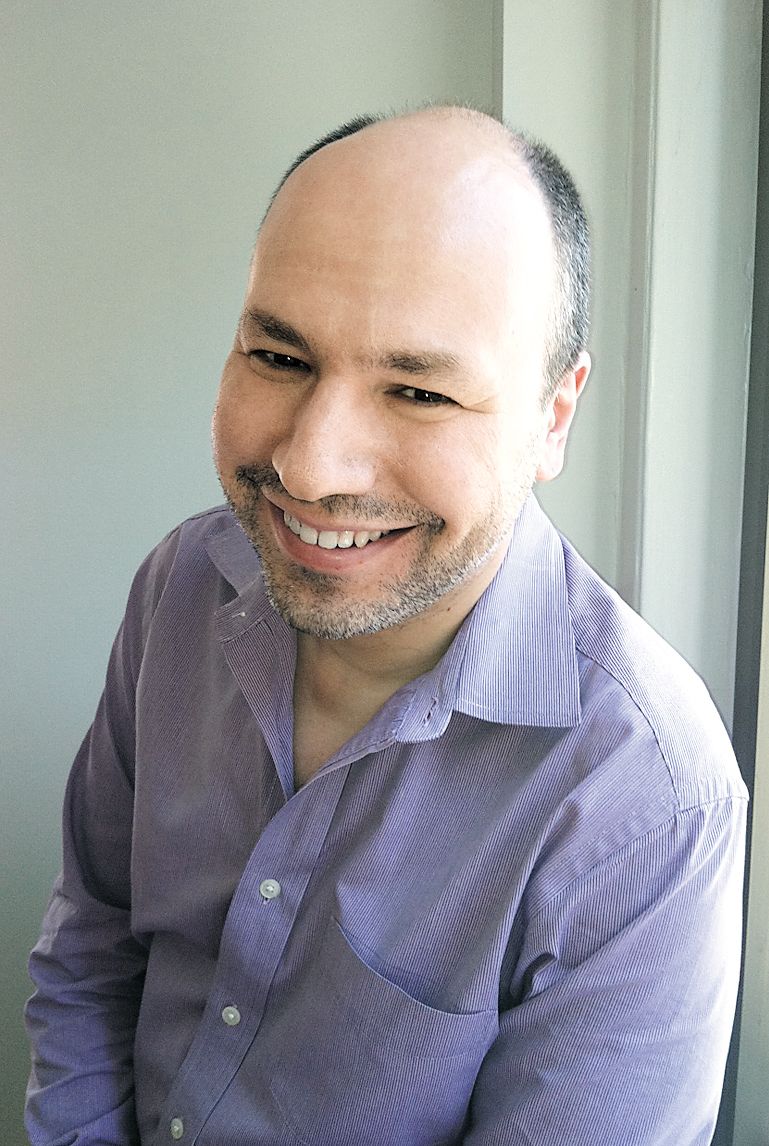
Rob Bates has written about the diamond industry for over 25 years. He is currently the news director of JCK, the leading publication in the jewelry industry, which just celebrated its 150th anniversary. He has won 12 editorial awards, and been quoted as an industry authority in The New York Times, The Wall Street Journal, and on National Public Radio. He is also a comedy writer and performer, whose work has appeared on Saturday Night Live’s Weekend Update segment, comedycentral.com, and McSweeneys He has also written for Time Out New York, New York Newsday, and Fastcompany.com. He lives in Manhattan with his wife and son.
Visit these other great hosts on this tour for more great reviews, interviews, guest posts, and giveaways!
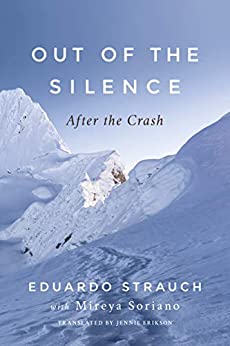
A personal story of survival, hope, and spiritual awakening in the face of unspeakable tragedy.
It’s the unfathomable modern legend that has become a testament to the resilience of the human spirit: the 1972 Andes plane crash and the Uruguayan rugby teammates who suffered seventy-two days among the dead and dying. It was a harrowing test of endurance on a snowbound cordillera that ended in a miraculous rescue. Now comes the unflinching and emotional true story by one of the men who found his way home.
Four decades after the tragedy, a climber discovered survivor Eduardo Strauch’s wallet near the memorialized crash site and returned it to him. It was a gesture that compelled Strauch to finally “break the silence of the mountains.”
In this revelatory and rewarding memoir, Strauch withholds nothing as he reveals the truth behind the life-changing events that challenged him physically and tested him spiritually, but would never destroy him. In revisiting the horror story we thought we knew, Strauch shares the lessons gleaned from far outside the realm of rational learning: how surviving on the mountain, in the face of its fierce, unforgiving power and desolate beauty, forever altered his perception of love, friendship, death, fear, loss, and hope.
ISLAND BREEZES
I just finished reading this book and I think it will have a place in my mind forever.I vaguely remember when this crash happened, but didn’t really know much about it.
It was seventy two days of a hard life and hard decisions.
Maybe you already know the story. I didn’t. I’m not even sure how I acquired this book. I just recently found it on one of my Kindles.
I think it is a book that should be read by everyone. It is a book that can lead you to a deeper insight into yourself.
Thank you, Mr Strauch, for sharing your story with the world.

Eduardo Strauch Urioste was born in Montevideo, Uruguay in 1947.
In 1968, at 21 years old, he opened an architectural studio with his best friend from childhood, Marcelo Pérez. He has worked as an architect and painter, and for many years he has given lectures about his experience surviving 72 days following a plane crash in the Andes Mountains. He is married to Laura Braga, and they have five children. They live in Montevideo.

For unto us a child is born, unto us a son is given: and the government shall be upon his shoulder: and his name shall be called Wonderful, Counsellor, The mighty God, The everlasting Father, The Prince of Peace.
Isaiah 9:6
“REALISTIC & CHILLING!” – Mystery Thriller Week
Roy and Susie are on a skiing holiday, trying to take a break from the constant reminders of their daughter, tragically killed by a careless driver. Out of the blue they meet Deb and Tom, another couple with a tragic past and a shocking proposal to put things right.
As the bodies accumulate, secrets are revealed and alliances crumble. Ultimate survival depends on following the rules for a perfect murder. And the first rule is… leave no singing bones.
A college Halloween party. A night of fun, dress-up, and laughter. But for Kristy Wise, it quickly became a night of horror.
Now, Joe Harlan Junior, entrepreneur and son of a prominent senator, is at risk of losing everything as he stands accused of a crime he insists he did not commit.
Yet the facts are undisputed: Kristy was drugged, and she did have sex with Joe.
But was it consensual?
Read the story. Listen to the testimony. Is everything that happens next justified?
YOU decide.
What would you do if you got away with murder? Would you stop there? Could you?
Susie and Roy thought that they committed the perfect crime.
Their planning was meticulous. Their execution flawless.
But, there is always a loose end, isn’t there? Always a singing bone.
Now, while enemies multiply and suspicions abound, their perfect world begins to crumble.
The hunters have become the hunted.
Roy Cruise and his pregnant wife Susie barely survived an assassination attempt in their own home. The police now have them under surveillance. Meanwhile, Kristy Wise is a loose cannon—she knows too much and is trying to “set things right.”
What goes around comes around. And in this case, Roy and Susie may have pushed things too far. There are too many dead bodies. Too many foes plotting against them.
Roy and Susie must outwit the police and neutralize their enemies once and for all. If not, their days of retribution may end behind bars… or six feet under.
| Genre: | Thriller, Suspense, Crime, Legal |
| Published by: | Talion Publishing |
| Publication Date: | October 5, 2020 |
| Number of Pages: | 1050 |
| ASIN: | B08KSCHTRX |
| Series: | Talion Trilogy #1 |
| Find out more or get your copy: |
Amazon & Goodreads |
When I try to piece together how this whole mess began, a part of me thinks it may have started over thirty years ago. At least the seeds were planted that far back, in the early 1980s. What happened then, at that summer camp in Texas, set the stage for everything that was to come.
Odd, how something so remote in time and geography continues to impact me here, today.
Sometimes I try to imagine her, how she felt—that eleven year-old girl—as she ran, stumbling and tripping through the woods that night. I try to put myself in her shoes. When I do, I wonder if she was frightened.
Did she understand the consequences of what she’d gotten herself into? I imagine it felt otherworldly to her, like a dream. But not a good dream. No, one of the bad ones—the ones that make your heart machine-gun as you try to outrun some dark thing that’s chasing you. But the faster you try to run, the slower you go, your legs feeling leaden, clumsy, useless.
Panic sets in. Tears of frustration form. Fear takes hold and won’t let go. You open your mouth to scream but realize, to your horror, that you’re paralyzed. It’s not that you can’t scream; you can’t even breathe. Not a dream—a nightmare.
Then again, all that may simply be my imagination. It could just be me projecting what I might have felt onto Joan. Maybe she wasn’t scared at all.
True, it was dark out. The night smelled of rain, but there was no lightning, only the far-off rumble of thunder hinting at a distant storm. There were no trail lights, no visibility but for the moon peeking out intermittently from behind a patchwork of clouds. But, Joan had been down this trail before. She was running toward the main cabin.
She had been at Camp Willow for almost two full weeks. She had been up and down that trail at least ten times a day, every day. Of course, that was during the day, and always with her buddy, or a camp counselor (the children called them troop leaders). Joan had never been on the trail at night. And never alone.
Maybe I imagine Joan was scared because, as an adult, I believe that she should have been. I would have been terrified.
***
Excerpt from Eye For Eye by JK Franko. Copyright © 2019 by JK Franko. Reproduced with permission from JK Franko. All rights reserved.

J.K. FRANKO was born and raised in Texas. His Cuban-American parents agreed there were only three acceptable options for a male child: doctor, lawyer, and architect. After a disastrous first year of college pre-Med, he ended up getting a BA in philosophy (not acceptable), then he went to law school (salvaging the family name) and spent many years climbing the big law firm ladder. After ten years, he decided that law and family life weren’t compatible. He went back to school where he got an MBA and pursued a Ph.D. He left law for corporate America, with long stints in Europe and Asia.
His passion was always to be a writer. After publishing a number of non-fiction works, thousands of hours writing, and seven or eight abandoned fictional works over the course of eighteen years, EYE FOR EYE became his first published novel.
J.K. Franko now lives with his wife and children in Florida.

Charlie Simmons, newly sworn in as Shannon’s policeman, takes on the challenge of investigating this cauldron of crimes in stride, untangling one thread after another from the fabric of the town of Shannon to find the simple truth.
Book Details:
Genre: Mystery
Published by: Blue Shutter Publishing
Publication Date: October 21st 2020
Number of Pages: 254
ISBN: 978-1-941611-16-6
Purchase Links: Amazon | Barnes & Noble | Smashwords | Goodreads
ISLAND BREEZES
One murder is bad enough, but two are definitely too many. Someone got tired of the blackmailing postman. Murder stopped the blackmail.
But who was he blackmailing? And just how many people was he blackmailing?
When Charlie became a new policeman in Shannon he didn’t expect a murder in this nice little community. But Charlie handled the job well and ended up figuring out who the murderer was.
I imagine he was looking forward to his boss coming back home so he could step back a bit.
Thank you, Ms Matthey. I would like to see more books placed in Shannon.
***Book provided without charge by PICT.***
Blanche Gruman sprawled on the park bench in front of the Presbyterian Church Monday enjoying the afternoon sun, her long, tanned legs stretched out on the sidewalk in front of the bench. She looked serene, with her face turned sunward, eyes protected by aviator sunglasses. Her blonde hair was almost white, bleached by the sun, and she wore it long and loose.
“Afternoon, Blanche,” Charlie said as he made his way toward town hall.
Blanche turned her head to see who had spoken. “Well, hey, Charlie!” she replied. She quickly sat up, pulling her bare legs primly under the edge of the bench. It was a lady-like move; just what you would expect from Blanche. A broad smile, showing perfect pearl-white teeth lit up her face.
Blanche Gruman owned and operated a successful hair salon in town. For Shannon, it was an exclusive salon. Blanche was an excellent cutter and stylist, and her flamboyant but tasteful sense of style attracted the cream of Shannon’s women to her salon, as well as some of the more prominent men. She had expanded her business over the course of a decade, hiring additional staff, but she was the queen bee, and closely guarded her select clientele.
Blanche had never married, though she’d had a fairly constant parade of suitors. Rumor had it that when someone had once asked her why she had never married she had flippantly replied, “Why marry one man when I can make so many happy?” Whether or not this was true, it was generally agreed that Blanche had a less traditional approach to relationships with men than her female contemporaries, and it was speculated that many of her female devotees who religiously came to Blanche for hair treatment did so as a means of keeping an eye on her latest paramour, primarily to make sure it wasn’t a wayfaring husband.
“You look mighty pleased with yourself,” Charlie said. He stood in front of her, blocking the sun from her eyes. She removed her sunglasses, hooking one of the templates on the V-neck of a snug knit top that accented her generous curves.
“It’s a great day to celebrate life,” she told him, “and that’s just what I’m doing.” Clearly, she was enjoying herself.
Charlie changed the subject. “You hear about what happened to Otto Hilty the other night?”
His question soured Blanche’s mood noticeably. Her voice took on a hard edge when she responded. “That SOB …” she began. “I don’t truck with what happened to Otto,” she said, “but I’ll not shed any tears for him.” She put her sunglasses on and stood, facing Charlie. “Like I said … it’s a great day to celebrate.” She walked off leaving Charlie standing, literally, with his mouth agape.
***
Excerpt from Two Murders Too Many by Bluette Matthey. Copyright 2020 by Bluette Matthey. Reproduced with permission from Bluette Matthey. All rights reserved.
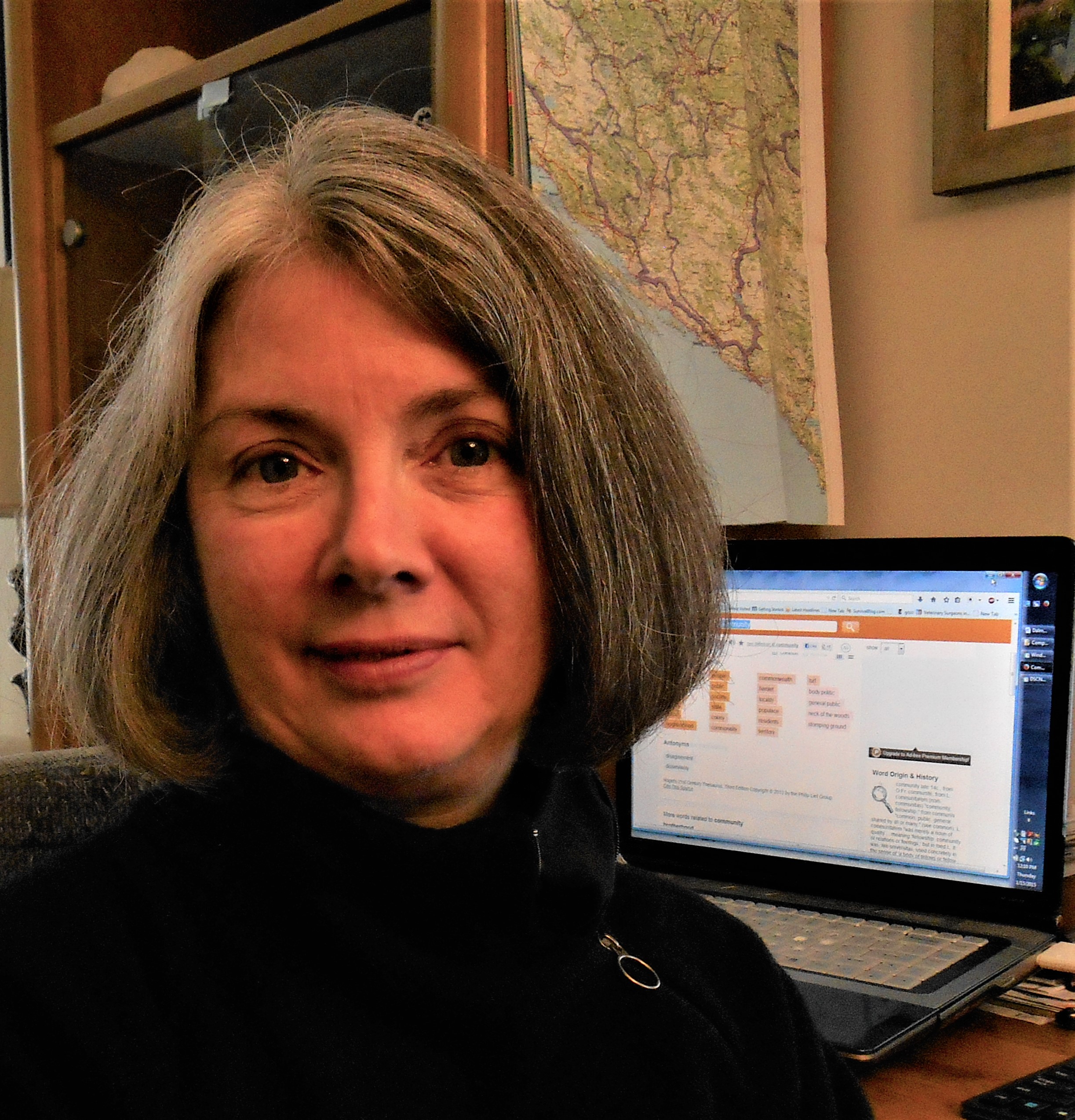
Bluette Matthey is a product of the melting pot of America’s settlers, with her ancestry rooted in the Swiss, German, and English cultures. She is a keen reader of mysteries who loves to travel and explore, especially in Europe. Bluette currently lives in Béziers, France, with her husband and band of loving cats. Other books by Bluette Matthey include the Hardy Durkin Travel Mystery series: Corsican Justice, Abruzzo Intrigue, Black Forest Reckoning, Dalmatian Traffick, and Engadine Aerie.
Visit these other great hosts on this tour for more great reviews, interviews, guest posts, and giveaways!